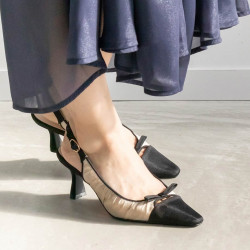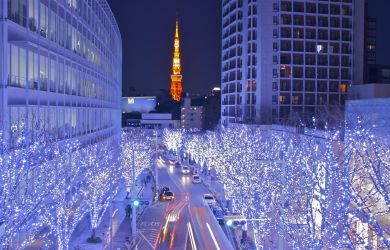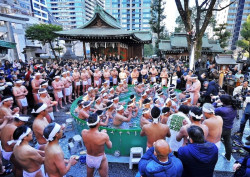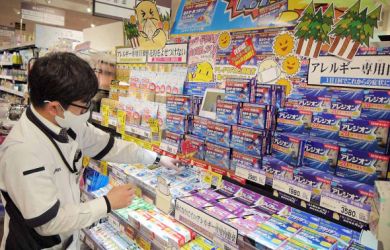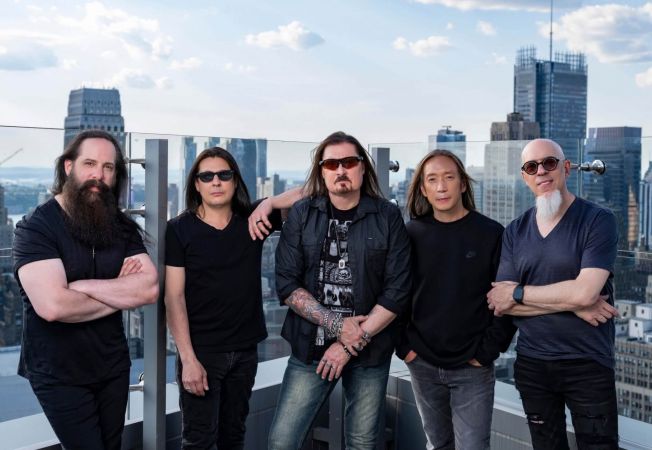
June 9, 2022
An Interview with Dream Theater’s John Petrucci
On Japan, Download Festival and staying true to your guns
Whether you’re a die-hard fan or not, Dream Theater is probably a name you’ve heard at some point in your life. Active since the late 80s, each individual member of the band is considered amongst the best in the world at what they do, winning numerous awards and honors from a variety of music publications for their virtuosic skills and technicality. Yet, progressive metal isn’t everyone’s cup of tea, and, as such, mainstream accolades have largely evaded the band throughout their 37-year career until taking home Best Metal Performance at the recent 2022 Grammy Awards. Fresh off the back of the group’s first Grammy win, Metropolis spoke with guitarist John Petrucci about sticking to your guns, the band’s long relationship with Japan and coming over to play Download Festival this year.
*Due to technical difficulties, the video interview was cut slightly short but John was kind enough to answer the final two questions via email.
Metropolis: Firstly, congratulations on winning the Best Metal Performance Grammy this year for “The Alien,” from the new album A View From the Top of the World. How does it feel?
John Petrucci: Oh, man. Well, thank you very much. First of all, it was a shock to win. I was there in Las Vegas. My wife and I went, the band didn’t go, and we were there when Jimmy Jam announced on stage “The Alien” and it freaked me out. I had to run up there in my suit and give a speech and it was just very, very surreal. I don’t think it’s very common for bands like ours, you know, prog metal bands to win something like a Grammy. And so it was a huge honor. It was a great experience, definitely incredibly memorable and we’re all pumped from it.
M: That’s great. You guys had been nominated a couple of times before and you were up against, I guess I could say, more commercial artists than yourselves.
JP: Exactly. This was the third nomination and again, if you think about “The Alien,” that song is typical Dream Theater. It’s a nine-minute prog track. It’s not your typical song. So, it was a real honor to be recognized by the voters in the academy after three nominations. It’s a great feeling.
M: You earned a Grammy for a track from your most recent album and your second most recent album, Distance Over Time, was your most successful album (chart-wise) to date. Why do you think Dream Theater is starting to see more mainstream recognition now, in its 37th year, than in previous decades?
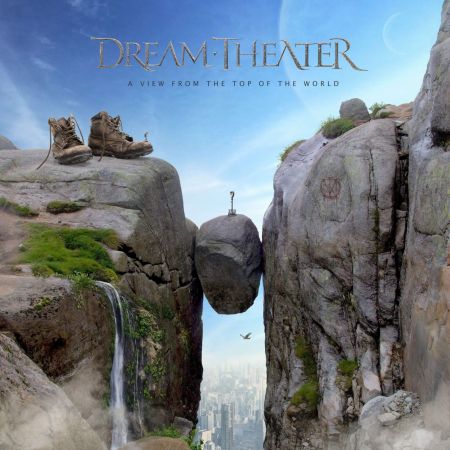
JP: Perseverance? [laughs] Maybe it’s that. I think that when we first started out, there really wasn’t prog metal, it wasn’t a thing or a genre and it might have been bubbling beneath the surface with a couple of bands. But fast forward to today and us being 15 albums into our career, the genre has really expanded and exploded and I think it’s more kind of in the forefront of people’s minds, not so much of a background, niche genre anymore. But listen, we work really hard, we have since we first started touring in 92 or whenever it was. And so I think just getting out there and working hard and not resting on our laurels, always putting in our best work when we do a new record and present a live show to people, that’s all important stuff, you know? It lets people know you mean business.
M: Exactly. Heavy music has experienced a lot of ups and downs since Dream Theater started. Especially in the 90s when there was a shift away from the popularity of heavy metal and prog rock towards grunge. How conscious are you of musical or cultural trends when you’re writing new music?
JP: Obviously you’re not immune to hearing the stuff that’s out there, you know what I mean? If you’re a living, breathing person, especially a musician, you listen to stuff, you hear stuff, you hear the changes. But I think that at the same time, for us, it was always important to keep our own identity. And even though very early on, we had our obvious influences because we were young guys, John Myung and I met each other when we were 12 and we went to Berkeley when we were 17 and met Mike Portnoy in those beginning years, we were like, not even 20 years old yet so we were drawing from our favorite bands and influences. But as time went on, and our band started to form its own identity, we always felt it was really important to keep that intact. Originality is really, really important. So the idea of knowing what’s out there and what’s existing, but not chasing after sounds and influences I think is important as your career develops. I think the band identity is really important, and it’s important for fans and people that like the band, and it’s important for us just as creative people, to be creative from the inside and not to take too much of that stuff in to [the point] where it changes for the worse.
M: At the end of your Grammy acceptance speech you told prog rock fans to stay true to their art.
JP: I think it’s an important message and when you talk to people that are successful or have reached a certain level, just based on doing what they felt was true to their artistic vision, and the recognition is that much more rewarding because you’re being recognized for something that you believe in. It simply comes down to well, this sounds good to me as you’re making stuff and then, once you put it out there, it’s up to other people just as far as their opinions, but I think it has to come from that place.
M: This is the fourth album that Mike Mangini has been a part of the writing process for and the first album was written and recorded in your new studio, Dream Theater HQ. How has the process developed since Mike joined the band?
JP: Well, the very first album when Mike joined, A Dramatic Turn of Events was very, very different. We went in there actually without Mike, just because we had gone through such a “dramatic turn of events,” with losing our buddy and our friend and co-founder in the band and then just all of a sudden finding ourselves in a situation and having to sort of regroup and move forward. And we felt like that was a time when we wanted to work on the music together as a core with the guys who have been doing this from the beginning. So, unfortunately, in that situation, Mike wasn’t involved. Then on the second record, he came right in there with us and we did the self-titled record and that was a group collaborative writing session in the studio, much like we had done on all the other records. Then you come the to The Astonishing, which was—again—very different.
There was a story that I wrote first that Jordan and I wrote the music to together as a score to the story. So, unfortunately, again, Mike wasn’t involved. And then you get Distance Over Time, which was probably the most collaborative since Mike joined the band, where we all went away to a retreat up in the mountains in New York, in this great studio barn kind of thing and we wrote this music together, and it was very highly collaborative. And that continued with A View From The Top Of The World as, once again, being highly collaborative, all of us in the room. You know, throwing ideas out, just writing the songs on the spot. The big difference with this record, as you mentioned, is it’s the first one we did at our own studio. We call DTHQ. It’s the third record I recorded there. I started with my solo album, in early 2020.
And then Liquid Tension Experiment 3, the summer of that year and then we went in the fall of 2020, to work on the new album. And at that point, we kind of had worked out all the kinks of the new studio and determined that yeah, we can make a great sounding record here. And there you have it. Our Grammy Award-winning song was recorded in our own home studio. So that kind of again, proves that you can sort of take control and do these things in a way that’s completely legit.
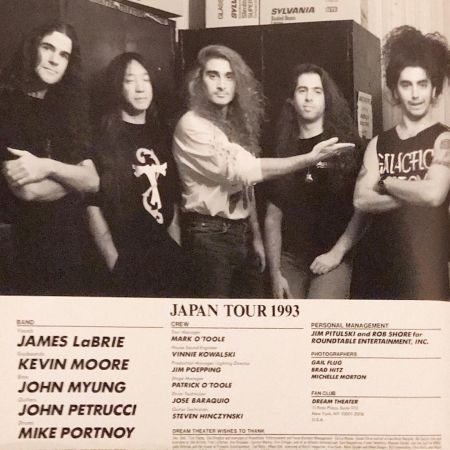
M: What was it like working with Mike Portnoy again after 10 years?
JP: Oh, it was great. It was great. You know, when I asked him to do my solo album, and come in he said, “Yes,” and I was so happy because we hadn’t done anything together, like you said, in all that time. I had written the record and recorded everything and had got drum guide tracks, much like I did with A Dramatic Turn of Events. And so Mike came in and you know, learned the songs and then played the drums to my track, so we didn’t really get a chance to play together. But it was still great for that week, having him come in and play and just hanging out and hearing him and watching him play again and bring his magic to my songs. So it was really, really a great week. And we just left the drum kit set up in the studio, kind of thinking ahead, like I wonder if we can do a Liquid Tension record. And sure enough, we did. And the Liquid Tension record was really the first time that we actually wrote collaboratively together and recorded it. So that was wonderful, too. But yeah, both really fun experiences.
M: You recorded with a specially-designed eight-string guitar for the first time on this album. Will the eight-string appear again on future releases?
JP: Oh, absolutely. The eight-string is a guitar that I had been working on with Ernie Ball Music Man, who we just celebrated our 20th anniversary with which is crazy. I’ve been with that guitar company for 20 years and they’re an amazing family and we’ve created some incredible guitars. But the eight-string was, again, worked on and talked about for several years. And originally I wanted to use it on Distance Over Time, but it just wasn’t ready yet. But I managed to get a prototype kind of after the whole record was written and we broke for the holidays and then we got together one more time after the holidays, in early 2021, and I had this prototype and I was like, guys, I want to write a song with this guitar and have it on the record. So because of that reason, I only was able to write one song. So moving forward, yeah, I’m looking forward to using it more and more.
M: So I wanted to get into the band’s relationship with Japan, seeing as you guys are coming out with Download Festival. You guys have been coming over since the early 90s. Can you tell us a little bit about the band’s relationship with Japan?
JP: Yeah, sure. Like you said, as soon as we first started touring after Images and Words we went to Japan for the first time and when we came back, the album and “Pull Me Under” had exploded and everything in our lives changed. So going to Japan for the first time and having that experience really marked an important time in our career and our lives. And, from the very first time, the reception we got from the Japanese people was just incredible. It was like nothing we ever experienced before, you know? The culture, the people, the promoter, the events, everything was just new and different and cool. So since then, we have been going back on basically every tour in support of our records.
And you know, we played more and more cities there and it has grown and grown. And every time we go there we feel the love, we feel the support from the fans. We’re fortunate enough that our releases still continue to do really well there and we have so much support from people like Masa Ito and things like that. So yeah, it’s been incredible and obviously, we did Live at the Budokan which was iconic for us and such an important moment. So yeah, Japan has always played a huge role in our lives.
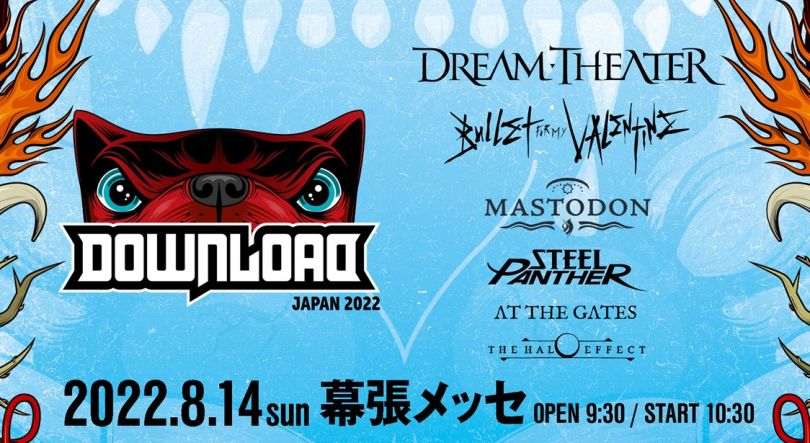
M: Unfortunately, the 2020 Japan tour for Distance Over Time was canceled due to the pandemic. How does it feel to be coming back to Japan for the first time in five years to play Download Festival?
JP: It feels great. Playing festivals in Japan is not something that we do too often. You oftentimes associate festivals with the European ones which we’ve done, you know, consistently. So getting the opportunity to do a Festival again in Japan is really, really cool, It’s a very unique experience for us and I know it’s going to be fun.
M: How do you find performing in Japan, compared to other parts of the world?
JP: Well, all the countries are different, that’s something that you learn pretty quickly as you become an international touring band. The concert audience in Japan and the whole setup is very different than in other places in the world. You know, just little things like the concert starting a lot earlier than your typical European or US shows and a lot of people come in directly from work so you there a lot of guys are in suits. It’s a different kind of experience, and it’s really quiet before you go on stage. You’ll be backstage and hear nothing and kind of think I wonder if anybody’s out there. But then, with all that in mind, the early show time, the quiet before the show, people coming straight from work, you walk out on stage and it’s just like this explosion and you see people in the audience jumping up and down, singing, waving their arms and smiling. The response is amazing. It’s definitely something that’s really unique to Japan but it’s wonderful.
M: You’ve been coming here since the 90s, how have your Japanese audiences changed since your first shows here?
JP: We do have fans that have been with us from the beginning. Our first record came out in 89 and Images was 92 so a lot of people are our age or older. But at the same time, there are so many young people now, and it’s so encouraging to see that. I love that and it makes me smile every time to look out in the audience and see the full age gamut. I think that’s awesome.
M: What should we expect from the Download set?
JP: It should be pretty close to the current ‘Top Of The World Tour’ set although our set time will probably be a bit shorter.
M: For any new listeners — where should they start in the Dream Theater catalog?
JP: I say start with the latest!
Feature image credit: Rayon-Richards


